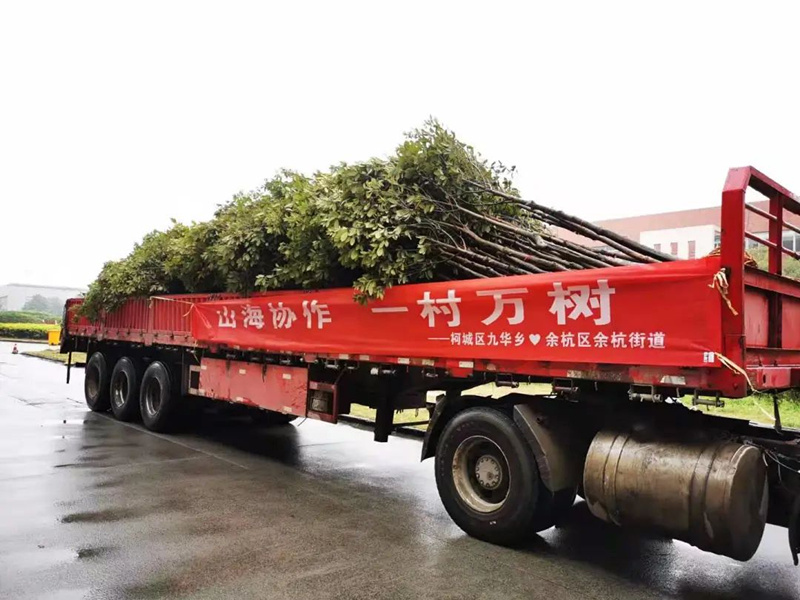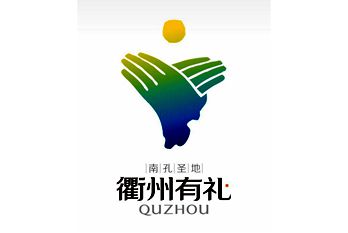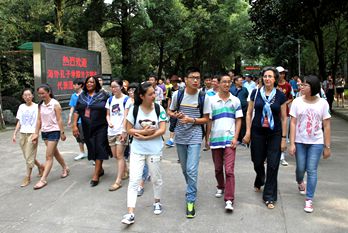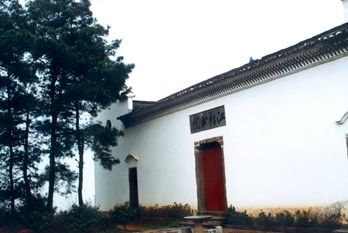Hangzhou partners with Quzhou to profit from planting trees
 The "mountains and oceans collaboration" between the Kecheng district in Quzhou and Yughang district in Hangzhou is expected to improve people's living standards through afforestation. [Photo/zjol.com.cn]
The "mountains and oceans collaboration" between the Kecheng district in Quzhou and Yughang district in Hangzhou is expected to improve people's living standards through afforestation. [Photo/zjol.com.cn]
The city of Hangzhou – capital of East China's Zhejiang province – is joining hands with Quzhou, an inland prefecture-level city in the southwestern part of the province with immense land resources.
The two are embarking on a tree-planting project that can benefit the environment, villagers, enterprises and government as well.
Quzhou has long been known as a thoroughfare between four provinces: Zhejiang, Fujian, Jiangxi and Anhui. As the gateway to the western Zhejiang, the city is now expected to become a strategic node for the province's "big-garden" project, the, as well as a green metropolis.
In addition to the construction of the Hangzhou-Quzhou high speed railway and the high-speed rail station in Quzhou, an urban integration development pattern between Hangzhou and Quzhou will be formed.
A few hundred meters away from Quzhou's high-speed railway station, a village is receiving more tourists than ever before. What was once a pile of construction waste has become a grove of all kinds of trees, including red maples and oriental cherry trees.
It was widely understood that creating a green space in the neighborhood motivates villagers to plant trees, but another driver for positive environmental change is profit.
The village recently teamed up with a livestreaming company and started selling the seedlings of trees online to be planted in their local grove. It also sold specialties produced in the village. After several rounds of livestreaming, over 400 trees were sold.
As a buyer of a local tree, Zhou Mengwei said his purchase meant a lot more than bettering the local environment. After graduating, he bought a tree five years ago as a sign of friendship for his college roommates.
"Ever since my roommates and I graduated and went to different cities to work, we've rarely had the chance to meet again," Zhou said.
"This tree symbolizes our long-lasting friendship – that even if we are miles apart, we still cherish what we've been through together," he added.
The decision to buy the tree-planting packages is so it can increase the incomes of local villagers, said Zhang Guobao, chairman of a Hangzhou-based technology company.
"We gathered together over 10 enterprises and spent 300,000 yuan ($46,446) to purchase trees in the village," Zhang said.
"I always believed making a profit for the company is just one thing, while shouldering social responsibility is another, which is equally important," he added.
The project is being funded through the investment of Hangzhou entrepreneurs. It's called the "One Village, 10,000 Trees" green option – with the term option being used as it is in financial markets, in which a contract gives a buyer the right to buy or sell an asset or instrument at a specified price before or on a specified date.
In the case of this program, an individual or enterprise signs a 5-year contract or 10-year contract to buy a tree or group of trees. Then, when the trees have grown at the end of the period, they can either take them away, have them change hands, or simply donate them to the village.
Part of the profit the village receives will be used for maintenance during the tree-growing process, while there are also a certain amount of dividends to be distributed to the villagers at the end of the year, said Li Yiwen, a local official in charge of the program.
After operating for three years, Li said the project had helped the village earn nearly 1 million yuan, with a total of more than 1,100 individuals and 19 companies subscribed for the green options on offer.
Officials from Zhejiang's capital of Hangzhou also spoke highly of the program.
The idea of using options helped the farmers to attract start-up capital for planting trees and gave them the market access to sell them, said Gao Yang, an official from the Development and Reform Bureau in the Yuhang district of Hangzhou.
This innovative model of development should be promoted in more regions, he added.
Officials said that the program would be explored further. It is hoped the scheme will be expanded, to contribute towards the country's efforts to achieve carbon neutrality by 2060.

 City brand logo - fist-and-palm salute
City brand logo - fist-and-palm salute Confucianism on campus
Confucianism on campus The culture of the academy
The culture of the academy